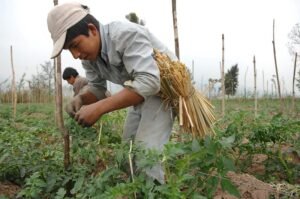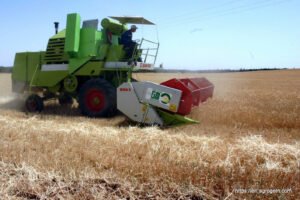Agricultural Education in Georgia. Georgia, located at the juncture of Eastern Europe and Western Asia, boasts a rich agricultural heritage deeply interwoven with its history, culture, and economy. Over the years, the importance of agriculture in Georgia has not waned. In fact, its role as a primary economic driver has only been reinforced, and agricultural education has emerged as an indispensable tool to enhance this sector. This article delves into the intricacies of agricultural education in Georgia, its historical context, current status, challenges, and future prospects.
Table of Contents
Agricultural Education in Georgia
Historical Background
Georgia’s farming tradition can be traced back thousands of years, with the region being one of the earliest to domesticate grains and develop viticulture (the cultivation of grapevines). The mountainous terrain and diverse climatic zones make Georgia an ideal place for a wide range of agricultural products. The “Golden Age” of Georgian culture (11th-13th century AD) also witnessed the flourishing of agricultural literature, with treatises being written on viticulture, farming practices, and animal husbandry.
Throughout history, the Georgian people’s connection with their land was evident not just in practice but also in academia. Informal agricultural education began at home, with knowledge being passed down through generations. However, as the world evolved, so did the need for formal agricultural instruction.

The Advent of Formal Agricultural Education
The late 19th and early 20th centuries marked the beginning of formal agricultural education in Georgia. With the establishment of agrarian institutes and schools, knowledge was systematically imparted to students. Subjects like crop science, animal husbandry, farm management, and agricultural engineering began to be introduced in the curriculum.
Post the Soviet era, which greatly influenced the structure and orientation of agricultural education in Georgia, there was a shift towards modernization. With Georgia’s independence in 1991, a renewed focus was placed on revamping the agricultural sector. The education system was reoriented to meet contemporary challenges and to adapt to global agricultural practices.
Current Status of Agricultural Education
Today, Georgia boasts numerous institutions dedicated to agricultural education and research:
- Tertiary Education: Institutions like the Agricultural University of Georgia offer a plethora of courses in agriculture. Bachelor’s, Master’s, and Doctoral programs are available in fields like agronomy, agribusiness, food technology, and veterinary medicine. These institutions also engage in research, helping to evolve farming practices in the country.
- Vocational Training: Georgia has vocational training centers that cater to those who want to acquire specific skills without going through a full-length academic program. Such centers offer courses in organic farming, wine-making, animal husbandry, and more.
- Extension Services: An essential part of agricultural education, extension services act as bridges between research institutions and farmers. They play a pivotal role in translating academic findings into practical solutions for farmers. Georgia’s extension system has undergone transformations over the years, with the government and international organizations working to strengthen its reach and impact.
- Youth Programs: Engaging the younger generation is crucial for the long-term sustainability of agriculture. Programs in schools and communities are designed to pique the interest of children and adolescents in farming.

Challenges Facing Agricultural Education in Georgia
Despite the advancements, agricultural education in Georgia faces several challenges:
- Curriculum Relevance: Often, there’s a gap between what is taught in institutions and the actual needs of the farming community. This misalignment can result in graduates who are ill-equipped to handle real-world challenges.
- Infrastructure and Resources: Some educational institutions, especially in rural areas, lack the necessary infrastructure. Limited access to modern laboratories, research facilities, and updated literature can hamper the learning experience.
- Faculty Training: Keeping faculty updated with global advancements in agricultural sciences is crucial. However, limited opportunities for further training and development can affect the quality of education imparted.
- Engaging the Youth: With the allure of urban life and alternative career paths, agriculture might not seem attractive to the youth. Bridging this gap and making agriculture appealing to the younger generation is a pressing challenge.
Future Prospects
- Technological Integration: With the global agricultural sector embracing technology, integrating digital tools, and innovative techniques in the curriculum is essential. This could include precision farming, drone technology, and the use of artificial intelligence in agriculture.
- Global Collaborations: Partnering with international agricultural institutions can provide exposure, exchange of knowledge, and resources. Such collaborations can be mutually beneficial, providing a platform for shared learning.
- Holistic Approach: Modern agricultural education should not just be about farming practices. It should encompass a holistic view, including sustainability, entrepreneurship, and market dynamics.
- Strengthening Extension Services: Investing in extension services can ensure that the benefits of research and advancements reach the farming community. Strengthening this bridge can result in a more vibrant agricultural sector.

Conclusion
Agriculture, being at the core of Georgia’s socio-economic fabric, demands an effective educational framework. While historical roots provide a solid foundation, the future lies in embracing change, innovation, and global best practices. Georgia’s journey in agricultural education is an evolving one, and with the right investments, strategies, and vision, it can pave the way for a thriving agricultural sector.
